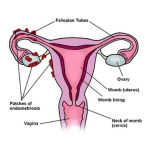Have you been having severe abdominal cramps lately? Does your stomach feel upset all the time? Are you experiencing unusual bloating? I am sorry but this could be more than a case of indigestion. When such symptoms persist, it is best that you seek a doctor’s opinion.
Chances are that your pain and discomfort might be as a result of irritable bowel syndrome. Not to worry though, irritable bowel syndrome is not a disease, it is not life threatening and it definitely is not chronic. Nonetheless, if irritable bowel syndrome is a new term to you, this post is definitely a good read for you. Everything that you need to know regarding this condition is laid out for you in this post. So, (please) keep reading.
The symptoms
- Bloating – This is the swelling of the abdominal area and it is one of the most common IBS Symptoms. When you have a bloated stomach, your abdominal area will feel full and tight and it might be accompanied by stomach growling.
- Persistent diarrhea – We all know the agony of wanting to use the bathroom after every two minutes, right? This is to be expected for someone who has irritable bowel syndrome.
- Constipation – When someone has irritable bowel syndrome, constipation is inevitable. Your stool becomes dry and hard, making it difficult (and sometimes painful) for you to go for long calls.
- Abdominal pains – When you have a hard time passing stool, a lot of pressure is going to build up in your abdominal area which at the end of the day will cause severe pain around the area. Fact is, irritable bowel syndrome causes contraction of the intestinal muscles which then results in severe bellyache.
- Weight loss and dehydration – We all know that persistent diarrhea is a major cause of dehydration, right? As if that is not enough, weight loss is also something that you might encounter because of the frequent bathroom calls.
The remedy
- The treatment of IBS is more of trying to relieve the symptoms. Some of the above-mentioned symptoms can be relieved by making major changes in your lifestyle. For example, changing the kinds of foods you eat might reduce the chances of you experiencing bloating, diarrhea and constipation.
Your doctor will advise you to try as much as possible to avoid foods and drinks that are high in gas. For example, fatty foods, caffeine, carbonated and alcoholic drinks should not be in your diet.
- Drinking plenty of fluids (preferably water) is also a good way of treating irritable bowel syndrome symptoms. Moreover, owing to the fact that persistent diarrhea robs your body of fluids, it is important that you take as much fluids as possible to avoid dehydration.
- Last but not least, getting enough rest and exercising regularly will also relieve you of the pain and agony related to IBS. According to numerous medical practitioners and fitness experts, the body recovers best when we are at rest. So, for you to regain strength after IBS, you need to exercise and sleep enough.







